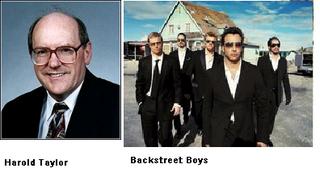Nantucket is one of America's most exclusive playgrounds: the sort of place where multimillionaires buy the home next door to house their staff, or tear it down just to improve the view. John Kerry's wife Teresa Heinz Kerry has a summer home there, surrounded by a 12-foot hedge. And apparently one of the founders of Google just put down $16 million for a house that's not even on the water.
A few economic observations from Nantucket:
* There are no limits to prices. Just when you think prices can go no higher, they can. In practice, this is true only of niche markets in which motivated, affluent buyers chase commodities that are rare. Yet many people serve such markets. Certainly that description could be applied to markets in Canada such as cottages in Muskoka, specific neighborhoods of Toronto, recreational property in Alberta and B.C., high-end clubs and restaurants in thriving cities such as Edmonton, Calgary and Vancouver, top-tier art, skilled labour and crafts people, etc.
* Related markets are also price-insensitive. We paid $25 an hour to play tennis (at a public court). Room rates at one hotel top $1,000 a night. One of my friends paid $25 for a quarter-chicken dinner. The good sweatshirts cost $80. (All prices U.S.$, frighteningly enough.)
* Vision pays. I met a few "middle class" people (academics, lawyers) who managed to buy homes or land on Nantucket in the late ‘80s and early ‘90s, when prices were much lower and in fact falling. Now they are sitting pretty. Even in a declining market, these people believed in the island and they followed their hearts.
* Every problem is an opportunity. Two hundred years ago, Nantucket was one of the most prosperous ports in America, its whaling ships circling the globe for precious whale oil. Then the harbour silted up, and petroleum was discovered. In the 1850s and 60s, the island stagnated economically and lost half its population. Then it rediscovered its most precious assets - a wonderful location with beautiful beaches, and a village with by unmatched collection of quaint (but solid) 18th-century buildings, untouched by the Industrial Revolution or the excesses of Victorian architecture. Nantucketers began a concerted effort to lure vacationers to their island - and created an infinitely renewable resource that was not only more lucrative than whaling, but much less smelly.
* Private philanthropy matters. One civic-minded businessman bought up most of the Nantucket waterfront to create a vigorous, attractive tourist area - without the carnival trappings. The Maria Mitchell Association, in memory of one of America's first female scientists, conducts important research and educational programs for tourists and residents alike. To preserve the island's environment, foundations have sprung up to buy land as it comes up for sale - bidding against private developers. (This of course also helps drive up land prices further.)
* Prosperity presents problems, but they can be solved. Few native-born Nantucketers can afford to buy properties of their own on the island, so many are forced to leave. One way Nantucket is trying to stem that problem is by allowing homeowners to build second homes on their lots.
And of course, it's hard to find good retail staff and other lower-skilled labour, due to high housing, food and transportation costs - so Nantucket firms have learned to hire willing workers from all over the word, especially eastern Europe, whose young people love the idea of living in the States. (They also endure crowded housing conditions that most young Americans wouldn't accept).
Supply and demand rules. (If only they taught this in school...)
- Thanks to my friend John B for this photo from our whale watching trip...





